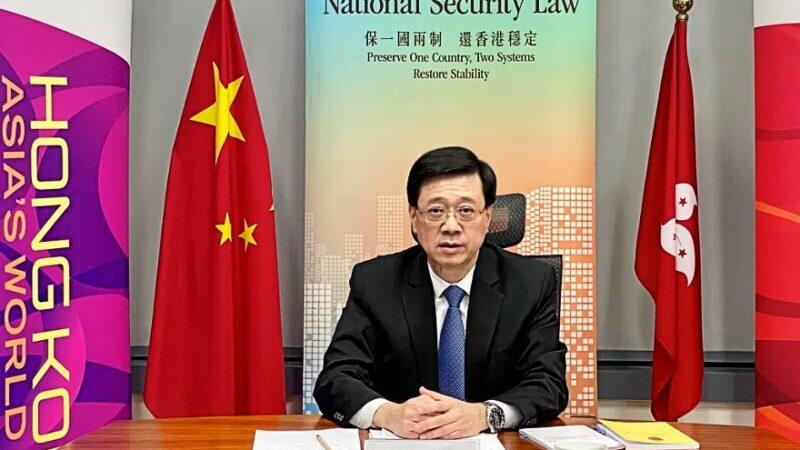By Staff writer

John Lee; Hong Kong New Chief Executive. Photo: courtesy
The Hong Kong, Special Administrative Region (HKSAR), has a new leader, as commonly known, a new Chief Executive. The media reaction to his selection, tells us much about global geopolitics, and the extent to which journalistic ethics, are receding into the background, as so many in the media sacrifice them, at the altar of different interests.
When campaigning for his now new role, John Lee, promised that his leadership would be “Starting a new chapter for Hong Kong together.” We are yet to know whether these were mere words, or whether Lee will indeed seek to open a new chapter, for what has been a troubled city in the near past.
It seems only yesterday, but it was three years ago, that Hong Kong was engulfed in almost daily protests. Although many protesters were peaceful, some turned violent, with running battles between young protesters and the police, breaking out.
The authorities however, suspected, and alleged foreign interference in the city’s affairs. It is easy to dismiss the idea of foreign interference, what form would it take anyway. The authorities would however, respond that such interference would enter the HKSAR, through the minds of the protesters.
Until 1997, Hong Kong had been a British colony for over a century, and the handover to China, although diplomatically agreed, and completed, was accepted only grudgingly, including by a number of Hong Kong’s citizens, who did not see themselves as part of China, but closer to “British traditions and values.”
A new understanding, some form of acclimatisation, and gradual accommodation with new, different values from China, would be needed. Hong Kong was after all, part of China, the people of Hong Kong are Chinese.
While the territory was a special administrative region, with a degree of autonomy, the options were not whether to be part of China, or remain under some kind of British influenced enclave, but rather, how to be part of China, while retaining that autonomy. The how, would have to be agreed upon with the government in Beijing.
By depicting the new Chief Executive’s stated wish to open a new chapter for the territory, as simply a slogan from a “pro Beijing” candidate, the media is aligning itself with the Western geopolitical struggle with China. Hong Kong is part of China, so, why would it be expected to be anything other than pro Beijing?
The notion of a pro Beijing Hong Kong, necessarily presupposes an alternative administration, one that would be pro something, or somewhere else, other than Beijing. What is that something else, or where is that somewhere else?
Hong Kong however, is a part of China, that had been under colonial control. To imagine that there would be no change, or alteration in the system alone, was to say the least misguided, or serving the interests of foreign powers.
Change was always going to come. What that change would be however, and how it came, would largely depend on how the people of Hong Kong, received their move, from colonial territory, to re-unification with China, albeit as a special administrative region.
Under such circumstances, it is perfectly understandable, and to some extent, valid, for China to charge that the protests were “subversion, and collusion with foreign forces…” The question of Hong Kong should be left to the Chinese people to deal with their historical challenges without foreign interference. Foreigners do not love the people of Hong Kong more than their blood brothers and sister. Foreigners behind the separatist agenda do not wish Chinese people well. There is an African proverb which says that, “whoever pretends to love a child more than the child’s parents, know that he/she wants to eat the child.”
The challenge for Hong Kong, and for China, now, is how to manage the change, and bring the people of Hong Kong back into the fold, by changing the pro or anti Beijing narrative. ‘Patriots governing Hong Kong’ is one of the ways to have a peaceful Hong Kong, and the relationship with mainland China being of one country with two systems, with a long term expectation of a complete unification.
That should be possible, for a people who count Confucianism, as one of their political, and cultural influences. That would certainly make the new Chief Executive’s words, more than mere slogan.
When John Lee takes office on 1st July, the external pressures will remain. How he chooses to confront them, will determine whether as he has also promised, he can lead Hong Kong, from “chaos to stability.”
For comments or opinion write to us oninfo@africachinareview.com
You can also follow us on twitter account @africachinarev
 Africa -China Review Africa -China Cooperation and Transformation
Africa -China Review Africa -China Cooperation and Transformation
